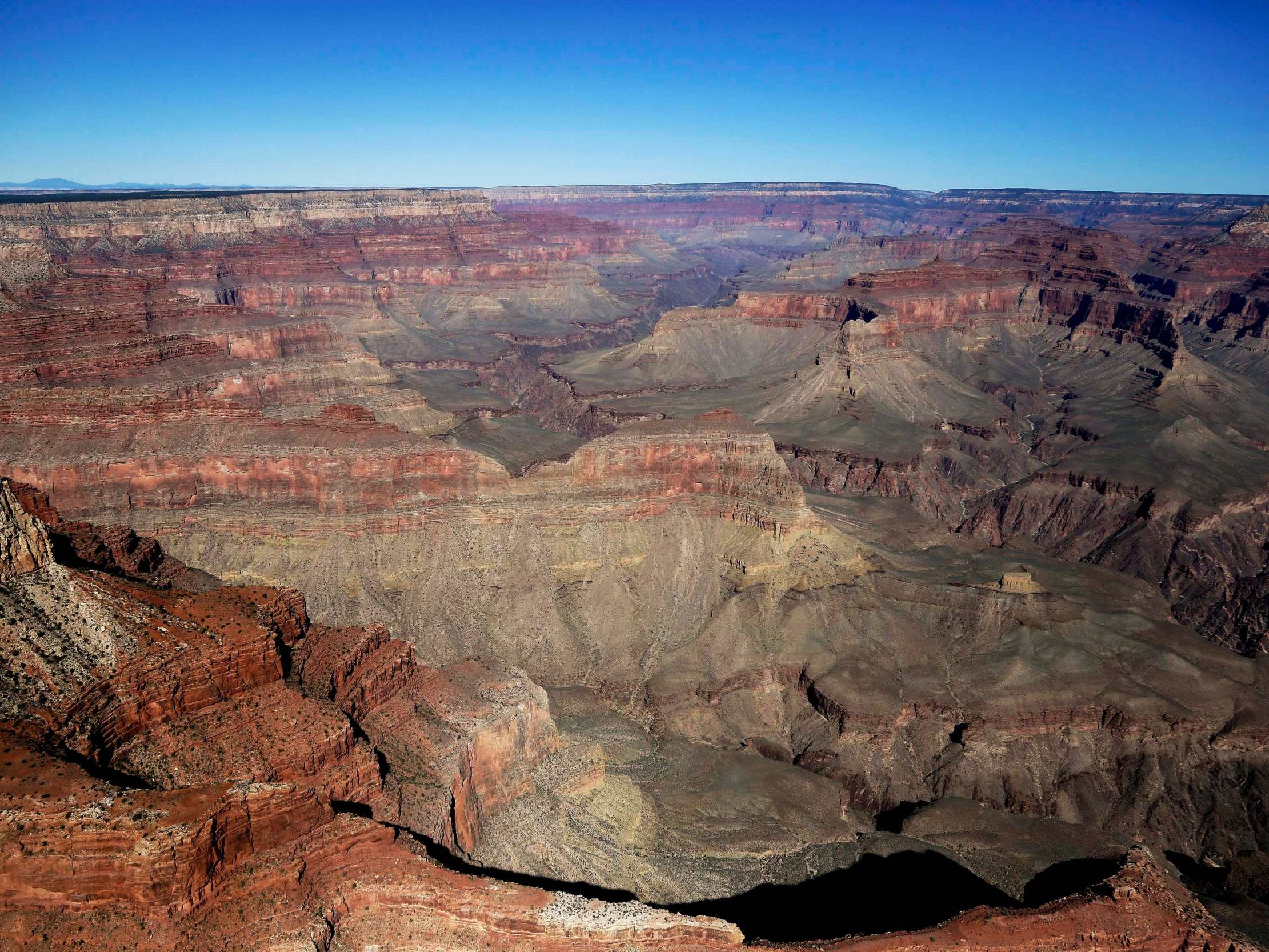This website uses cookies so that we can provide you with the best user experience possible. Cookie information is stored in your browser and performs functions such as recognising you when you return to our website and helping our team to understand which sections of the website you find most interesting and useful.

Public lands across America, many of which remain closed to visitors due to the coronavirus pandemic, are being offered up to industry by the Trump administration.
The Bureau of Land Management (BLM), part of the Department of Interior, is pushing ahead with plans to lease hundreds of thousands of acres of public lands to fossil-fuel and mining companies – despite recent steep declines in oil prices and a glut of supply. The Department of the Interior is led by David Bernhardt, a former oil and gas lobbyist.
President Trump is expected to announce a plan soon to aid the US oil industry, AP reported on Thursday.
Administration officials are studying multiple options to assist the sector, including potentially stockpiling another several hundred millions of barrels of oil in the strategic reserves, according to Treasury Secretary Steve Mnuchin.
The president anticipates the oil industry will “have a couple of bad years” because of the “tremendous oversupply.” But he added that insuring US energy independence was crucial to preserving US national security and economic strength.
BLM oversees around 245m acres of public land – 1 in 10 acres in the US – mostly in the western states.
In Utah, 150,000 acres is up for sale for drilling, with some parcels close to Arches and Canyonlands national parks, home of some of the west’s most dramatic red-rock landscape.
Erika Pollard, associate southwest regional director for the National Parks Conservation Association, told the Salt Lake Tribune: “The BLM must deny these egregious requests to open oil and gas development outside of Arches - on lands double the size of the national park itself.”
At Arizona’s Grand Canyon National Park, one of the most popular with tourists in the US, mining companies want the federal government to allow them to extract uranium, AP reported.
Earlier this month, a government lawyer with the Interior Department’s Office of the Solicitor, Edward Keable, was appointed to oversee Grand Canyon National Park, a rare selection of someone who had not risen through the ranks of the National Park Service.
Extracting uranium is a huge draw on water resources with mines needing hundreds of gallons per minute, at a minimum. According to the Arizona State Climate Office, the region is in its 21st year of long-term drought.
Since 2019, BLM has released plans for Alaska, Colorado, Idaho, Montana, New Mexico, and Oregon laying out the management of more than 20m acres over the next 20 years.
The Pew Charitable Trusts public lands and rivers conservation program, which reviewed and analysed the plans between May 2019 and earlier this year, “found troubling trends” that warn of the loss of protection for millions of acres of public land and “opening vast swaths to energy and mineral development”.
New plans on expanding oil and gas development are underway in Uncompahgre, Colorado, Lewistown and Missoula, Montana, and Four Rivers, Idaho along with an area around the Chaco Culture National Historical Park in New Mexico.
"These BLM plans continue a recent trend of significantly reducing protections for longstanding Areas of Critical Environmental Concern, places where special management is needed to protect important historic, cultural, scenic, or fish and wildlife resources," the Pew report noted.
The BLM did not immediately respond to a request for comment by The Independent.
Melyssa Watson, executive director of the Wilderness Society, told The Guardian: “From rolling back EPA’s pollution standards, to pushing for more oil and gas drilling and stifling the public review process, the federal government is fast-tracking rollbacks that deserve public scrutiny."
Last month, Environmental Protection Agency chief Andrew Wheeler, a former coal lobbyist, announced a rollback on the Obama administration’s emissions standards for vehicles, despite the decision meaning that millions more tonnes of CO2 will be added to the global warming crisis.
The EPA also said last month that it would suspend the enforcement of environmental regulations that punish polluters during the coronavirus outbreak and allow industries to self-monitor.
At the time, the Natural Resources Defense Council tweeted: “This is an open licence to pollute. The administration should be giving its all toward making our country healthier right now. Instead it is taking advantage of an unprecedented public health crisis to do favours for polluters that threaten public health.”
Associated Press contributed to this report



 Africana55 Radio
Africana55 Radio 

